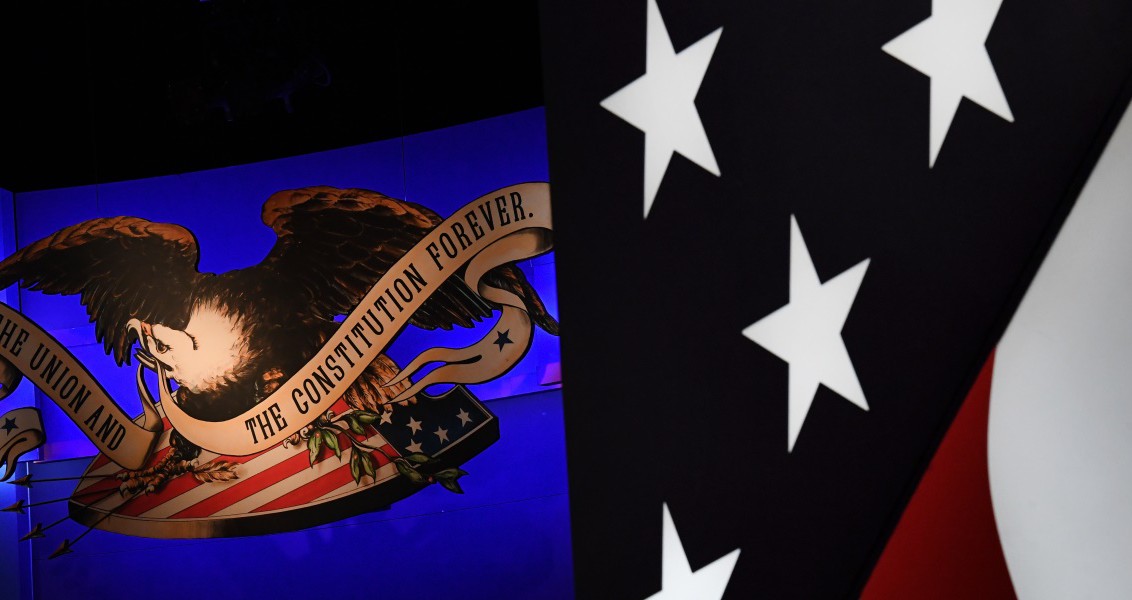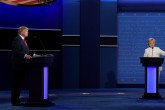In a previous piece in this column I mentioned the difficulty the international community is going through in regards to their expectations of the presidential candidates following the election. Due to the nature of the presidential campaigns this year it is hard to get deeper into the plans, proposals and projects of the candidates about the U.S. foreign and security policy in critical areas. There are too many mixed signals and inconsistent statements about the foreign policy area. The possible contenders for the critical positions in the administration and their priorities also contribute to the emergence of a more complicated picture. So far in the campaign process we have seldom witnessed any talk on a specific issue in the foreign policy.
One of the areas that raises a lot of attention abroad but not so much in the campaign process is the foreign policy positions of the candidates about the Asia Pacific. Due to the rise of Daesh and its threat to national security, the Iranian nuclear deal and its polarization effect on the U.S.’s internal politics and the situation of Iraq and Syria and the revived debates about the Iraq War, most of the focus on the debates regarding foreign policy are directed toward the Middle East. However there are significant and consequential issues in the Asia Pacific. And both U.S. allies and rivals in the regions are trying to understand the potential policies of the candidates about this region.
Similar to other issues, such as resuming the peace process in the Middle East and resetting the policy toward Russia, the Obama administration launched an ambitious foreign policy agenda toward Asia in the first two years in office. The “asia pivot” policy which was mostly designed and run by then Secretary of State Hillary Clinton, aimed to shift the focus of the U.S. foreign and security policy toward the Asia Pacific due to its increased economic relevance and the rise of China as a major rival to U.S. allies in the region. Following the launch of this policy, many observers and analysts expected a significant shift toward the region. However it did not happen as expected. In a very short period of time, the name of the policy was changed to a less ambitious “rebalance” and with the rise of Daesh, the debates on China were emphasized less and less in policy circles.
Now, just before the election there is a question in Asia about the new administration approach to the potential and threats in this region. Of course since Hillary Clinton spent a lot of time and effort to open U.S. foreign policy to the region, there are high expectations, especially among U.S. allies in the region, to resume a higher level of strategic and political dialogue with the United States. There can be serious “resets” with U.S. allies in the region, such as South Korea and Japan. Recent controversy about U.S. relations with the Philippines will also be impacted with the new administration. Since Secretary Clinton spent a lot of time in Southeast Asia and launched significant policy initiatives in regards to countries such as Burma, we can expect similar surgical diplomatic initiatives in this region. Possibly one of the more controversial issues will be human rights in this part of the world. Clinton, during her office in the State Department, had a mixed record about the issues of human rights in China. The release of Aung Sun Suu Kyi from prison, the issue of Chinese human rights activists Chen Guangcheng, all raised significant debates about the focus to human rights. Thus there is a slightly optimistic expectation for resuming the conversation about human rights in the region with the new administration. Other than calling some U.S. allies as “free riders” and emphasizing increasing U.S. military presence in the South China Sea, Republican candidate Donald Trump did not mention much about U.S. foreign policy toward the region in general. He was more focused on China.
Of course during the campaign process, instead of human rights or U.S. allies in the region, the focus was the consequences of the “unfair trade practices” of China to the domestic economy of the U.S. For instance, Trump was extremely vocal to target China because of the currency manipulation. He mentioned in different instances that if he is elected he will “Instruct the U.S. Trade Representative to bring trade cases against China, both in this country [U.S.] and at the WTO [World Trade Organization].” He was particularly open in criticizing both the U.S. administration and China to lead to high trade deficit. He mentioned that “We [the U.S.] can’t continue to allow China to rape our country, and that’s what they’re doing.” This is an issue that actually both Clinton and Trump agree on. Both candidates emphasized that the U.S. is losing so many jobs to China, a point that almost all presidential candidates raised for the last two decades in U.S. elections.
Again both candidates were very vocal about the cybersecurity issues, which can be considered one of the most significant campaign issues this year due to the reports from different intelligence agencies in the U.S. about cyberattacks from other countries. Clinton has said, “As president, I will make it clear that the Unites States will treat cyberattacks just like any other attack. We will be ready with serious political, economic, and military responses.” Similarly, Trump has said he will have a “zero tolerance policy” on Chinese cybercrime.
The difficulty to figuring out candidates’ policy toward Asia is the lack of a comprehensive document. Most of the issues I raised above can be understood only through some quotes from their speeches. There is no mention of the Senkaku Island debate between China and Japan or the Spratly Islands dispute between the seven countries in the region. There is not much mention of North Korea and its nuclear program. So far we do not hear about Taiwan and its security or Hong Kong and the protests in the country. The Asia Pacific still is in the periphery in their major addresses to the U.S. public opinion.
[Daily Sabah, October 31, 2016]



